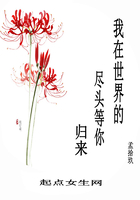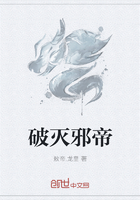I remember my first day in Chinese language school。Eight of us foreigners were sitting around a table。Not one of us could speak a word of Chinese。The first period began,and the Chinese teacher walked into the room。She was as woman from Beijing,and she could not speak one word of English!
The teacher said,“Zao!”We all looked at each other;none of us had ever heard“zao”in our lives。So the teacher passed out a piece of paper to each of us。On the top line was written“zao‘good morning’。”So“zao”means“good morning。”That was good to know。
Then she said,“Zao,gen wo shuo!”Again we all looked at each other,because we did not have the slightest idea what she meant。But the second line of that piece of paper said“gen wo shuo‘say it after me’。”So“zao,gen wo shuo”means“good morning,say it after me。”We said,“Zao,zao,zao!”That made us feel pretty good。Already,in the first hour of the first day in language school,we could greet each other in Chinese!
That was in 1964,37 years ago。My wife and I had just arrived in Taiwan,where we planned to live and work for a long time。During our first two years there,we attended Taipei Language Institute。We went to school for five periods every day,five days a week。Each day we had two to three hours of homework,mostly listening to language tapes。
Taiwan was an ideal place to learn Putonghua。All our teachers were from Beijing,so we had a good model of standard Putonghua to learn。But on the street we encountered people from all over China,so we got used to hearing the different accents that people use in speak-ing Putonghua。Moreover,very few people could speak any English at all,so we had to learn Chinese quickly and well if we were going to function in the society。
During the years since then,I have learned some more about how to learn a second language。As I see it,there are three requirements for success in second language learning。
Native ability is the first requirement for mastery of a second language。Some people have more language learning aptitude than others。That is one reason why some Chinese students of English seem to have much less difficulty than others in their studies。Lan-guage learning aptitude is not the same as intelligence。Some students who do poorly in other subjects may learn English very well,and vice versa。Students with high language learning aptitude will find English an easy subject,and they may learn the language to a high degree of mastery。But the good news is that everybody can learn a second language。It will just be more difficult for some than for others。
Environment or opportunity is the second requirement for sec-ond language mastery。Students in Quzhou No。2 Middle School have a better opportunity for English learning than most students in China,because English is emphasized in the curriculum,the Chinese faculty of English teachers are highly qualified,and there are often native En-glish speakers teaching in the classroom。
But Quzhou No。2 Middle School is not an ideal environment or opportunity for learning English。An ideal opportunity would be if a student could go to Redwing,MN for a year or so,and she had no other Chinese speakers to talk to。It would be an ideal environment because she would have to function in English。If she could not com-prehend or communicate in English,she would starve to death!That would provide very high motivation for her to learn English quickly and well!
Of course,while this would be an ideal language-learning opportunity,it would not be easy,especially at first。Adjusting to the new environment,being among strangers,away from family and friends,and not being able to communicate much at first would be difficult and discouraging。But adjustment would come quickly,strang-ers would become new best friends,and adequate communication would develop quickly。So it would be ideal,though not easy。
Hard work is the third requirement for second language mastery。During 1980-81,I was Acting Director of the Intensive Chinese Lan-guage program at Cornell University。Several Chinese teachers worked with me。One of them was a Visiting Scholar from Tianjin。This was his first time outside of China,but he absolutely amazed me:he spoke English just like I did!American accent!Fluent!Correct grammar and usage!Wide vocabulary knowledge!In one year of working with him,I heard him make only one English mistake,one time!
What was even more amazing was that he had learned English while he was“sent down to the countryside”during the Cultural Revolution。Every day he had secretly listened to British Broadcasting Corporation,Voice of America,and language tapes。Over the years he had mastered English in that way!Amazing!
The important point is that I have no idea how high his native language learning ability was。He certainly had no opportunity,no environment for language learning。But just by the effort of hard work was he able to learn English。
So after all is said and done,I have to say that native ability is important。Environment or opportunity is also important。But hard work is essential。A person may have the highest natural ability for language learning,but if he does not work hard,he will not learn any second language。Likewise,a person may have little or no opportunity or environment for second language learning,but if she works hard,she will master the language。
Hard work is necessary,but it also has to be the right kind of hard work。We all know students who work hard for years to learn English,but have little to show for all their activity。Why?In my opinion,it is because 1)they do not understand the nature of language,and 2)they do not spend their language-learning energy in the right way。
Most people seem to think that language is reading and writing。Or perhaps studying grammar,learning vocabulary,and doing transla-tion will enable one to learn a language。Certainly,a student cannot ignore any of those things,especially because our Chinese education system tests for knowledge and skills in those areas。
However,most simply and most importantly,language is none of the above。Rather,language is an oral means of communication be-tween people。That means speaking and listening。It also means using the language in actual conversation,not just as a school subject to get a grade on。
So if language is an oral means of communication between people,what sort of“hard work”should one be doing to master it?I would suggest four principles。
Mimicking is the first rule。That means listening carefully to the way something is said,and then trying to say it as closely as possible to the way it sounded。Unfortunately,most people think they are mimicking,but they are not;they are just“reading”what they think they heard。Let me explain what I mean。
If a learner of English hears an American say,“What do you mean?”and tries to copy it,it does not come out sounding at all like the way the American said it。The American actually says something like,“Waddaya mean?”But the Chinese English learner tries to picture what those words look like on the printed page,and then reads them with his“mind’s eye。”As a result,he says“what do you mean,”not“waddaya mean。”He sounds like he’s reading a book,not talking!That is not mimicking。
In order to truly mimic,the learner concentrates on all the sounds she hears in a phrase,and simply tries to reproduce the sounds as closely as possible,without thinking about how the words are spelled。A good tool for this is one of those tape recorders where you can hear a phrase,record yourself copying it,and then listen to both the original and your recording to determine how closely you mimicked it。
The second principle is to learn language as a skill rather than as a school subject。All the other subjects-math,literature,science,politics,etc。-are“knowledge content”courses。The student ac-quires new information,learns to manage it,and then is said to have“learned”the subject。
Language is not learned like that。Of course,there is knowledge involved in the acquisition of language,but the learner is primarily developing a skill,which is a different way of learning。It is not so much learning about something as it is doing it。That means practice-speaking and listening-lots of it,and often。
I was 17 when I learned to drive a car。Before I ever did it,I knew all about how to drive。I knew all about steering wheels,gear shifts,clutches,brakes,and accelerators。For years I had watched other people drive。I had read about cars,about drivers and driving,and had passed the written examination which was about automobile systems and the rules of the road。
But I will never forget the first time I actually sat in the driver’s seat。I tried to do everything I knew about to make the car move,but there was no way I could make it go smoothly,I scared the driving instructor by almost hitting a few roadside things,and almost injured myself when I applied to brakes too hard and suddenly。It took weeks of daily practice before I developed the skill to make the car go smoothly and safely。Now,after many years of driving,I don’t even think about what I am doing,because I am highly skilled,I do it automatically,without thinking,and I can go safely down the highway at high speed,with myself and my passengers perfectly relaxed。
The principle is the same in language-learning。The student may have knowledge of grammar and vocabulary,but until he practices-listens and speaks-on a daily,skill-building schedule,he will not learn the language。There has to be a lot of practice,and often。
The third principle is to be thick-skinned!Do not be afraid of making mistakes。Making mistakes is part of the language-learning process。Often,you learn best by making mistakes and having them corrected in actual conversation。
Unfortunately,I run into so many students who will not open their mouths and speak because they are afraid of making a mistake。“I’m not sure I’ll say it right,”she says。“If I make a mistake,I’ll be embarrassed,maybe have loss of face!And people will laugh at me and say I’m stupid!”
WRONG!Making mistakes is not being stupid,it is an essential part of the learning process。If you do not make mistakes,you will not learn。
I remember one evening nearly 37 years ago。My wife and I had been in Chinese language school about six months,and that evening we wanted to go to a Taibei suburb to visit some friends。I walked up to the bus ticket office to buy the tickets,and I knew exactly what to say。But instead of saying“。。。liangzhang piao,”I said“。。。erzhang piao。”To confirm my request,the ticket seller said,“Liangzhang piao ma?”Right away I knew I had said it wrong,and felt embarrassed,be-cause we had studied“liangzhang”instead of“er”in school。I should have known better!And from then until now,I have always said“liangzhang”instead of“erzhang”。Making that little mistake was the best lesson I ever had in“er/liang。”
The fourth principle in working hard is to not ask“why,”espe-cially in the beginning stages of language learning。The more useful questions are“how”and“what。”“How should I say this?”“What is the right word or expression to use in this situation?”The answer to“why”is often a grammar explanation about the language,or there may not be an answer to“why”a language says something in one way or another。So any time spent in trying to answer“why”is time taken away from actually“doing”the language。And as you get to know more of the language,you will naturally learn answers to your“why”questions,including grammar points。
So much for working hard。Finally,I would like to suggest a four-step learning program for each day,based on the four letters in the word“GLUE。”Just as glue enables one thing to stick to another,this daily cycle of activities will help the language“stick”to you。
Get is the first step,and the principle is to“get a little,use it a lot。”At the beginning of each day,get one sentence,two at the most,to master that day。These one or two sentences could be pattern sen-tences in your English texts for that day。Do not try to master a com-plete paragraph or dialogue-that is too much for anybody to do。One or two key sentences only。
Learn。Probably most of your time each day should be spent learning the one or two sentences you have decided to master。That means practice,drilling yourself over and over again until you can say them without hesitation,without thinking of the Chinese first。The object is to make those sentences so deeply impressed in your brain that you can say them automatically,without going through a transla-tion process。
Use。In my opinion,this is the most important step of the day,and the one that most learners ignore。Once you have“learned”the sentences of the day,you should go out and actually try to use them in a conversation。The chat does not have to be long-maybe only two or three minutes-but the learner should try to include what she has learned that day。I now believe that we really learn a language in conversation,not in a classroom,not in a book。Until you actually use the language to have conversations,you will make little progress to-ward mastering it。
Evaluate。At the end of each day,you should evaluate how you did。Maybe you tried to use that day’s sentences in a conversation,but you temporarily forgot what you had learned!Perhaps that means that you need more learning practice the next day。Maybe you used your sentences,and then the other speaker said some things that you didn’t understand at all。Perhaps that can give you some ideas of one or two sentences to learn the next day。Maybe you used your sentences,but the other speaker did not understand you at all!Perhaps that means that you should do some pronunciation practice as part of the“Learn”step in the next day’s cycle。
One or two sentences are not very many to master in one day,but if you do that every day,in one year you will have learned hun-dreds of sentences。And if you faithfully follow the GLUE cycle,the foreign language will“stick”to you,and it will be yours。












